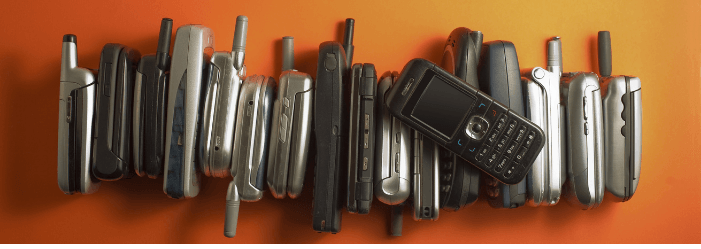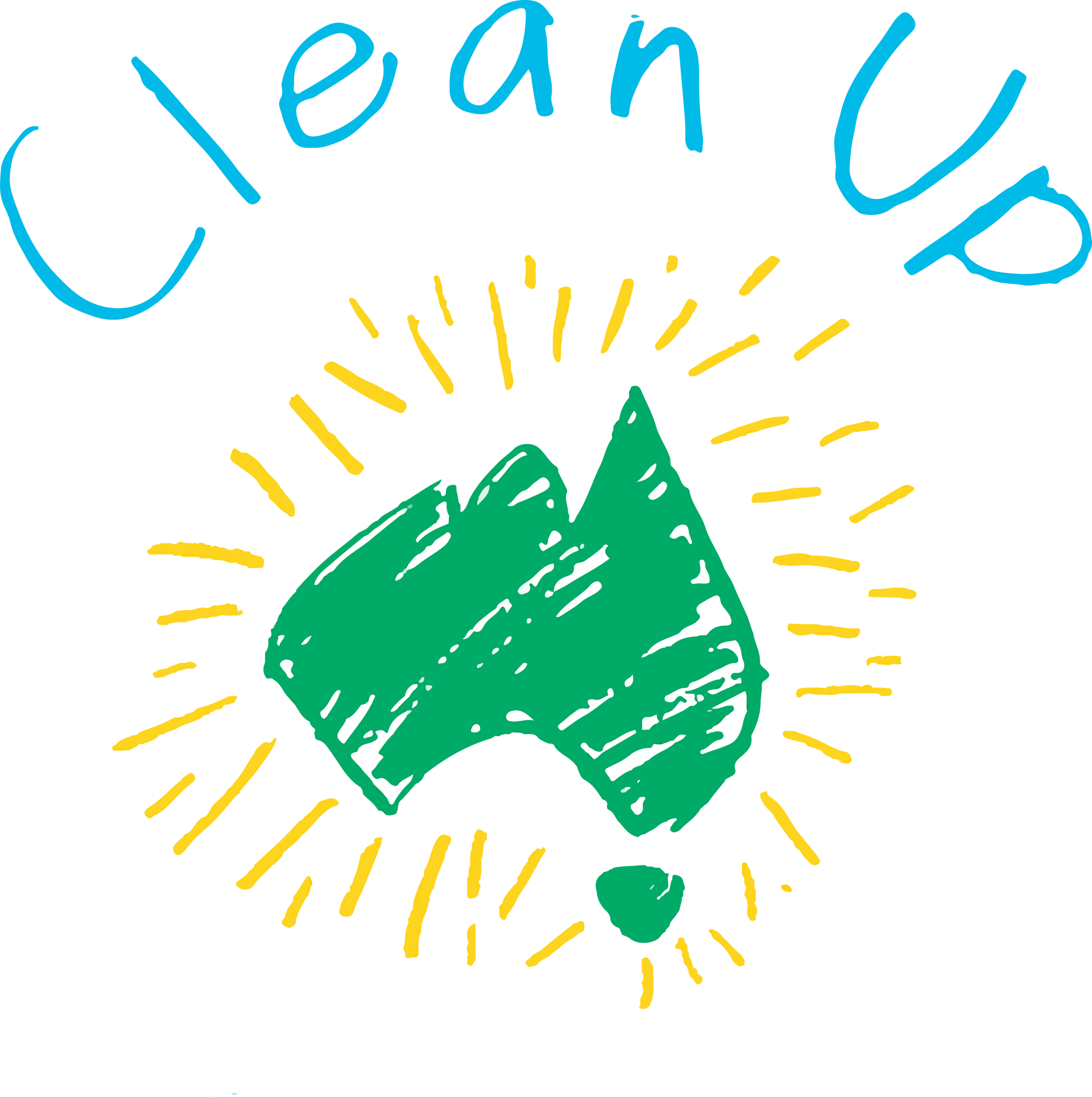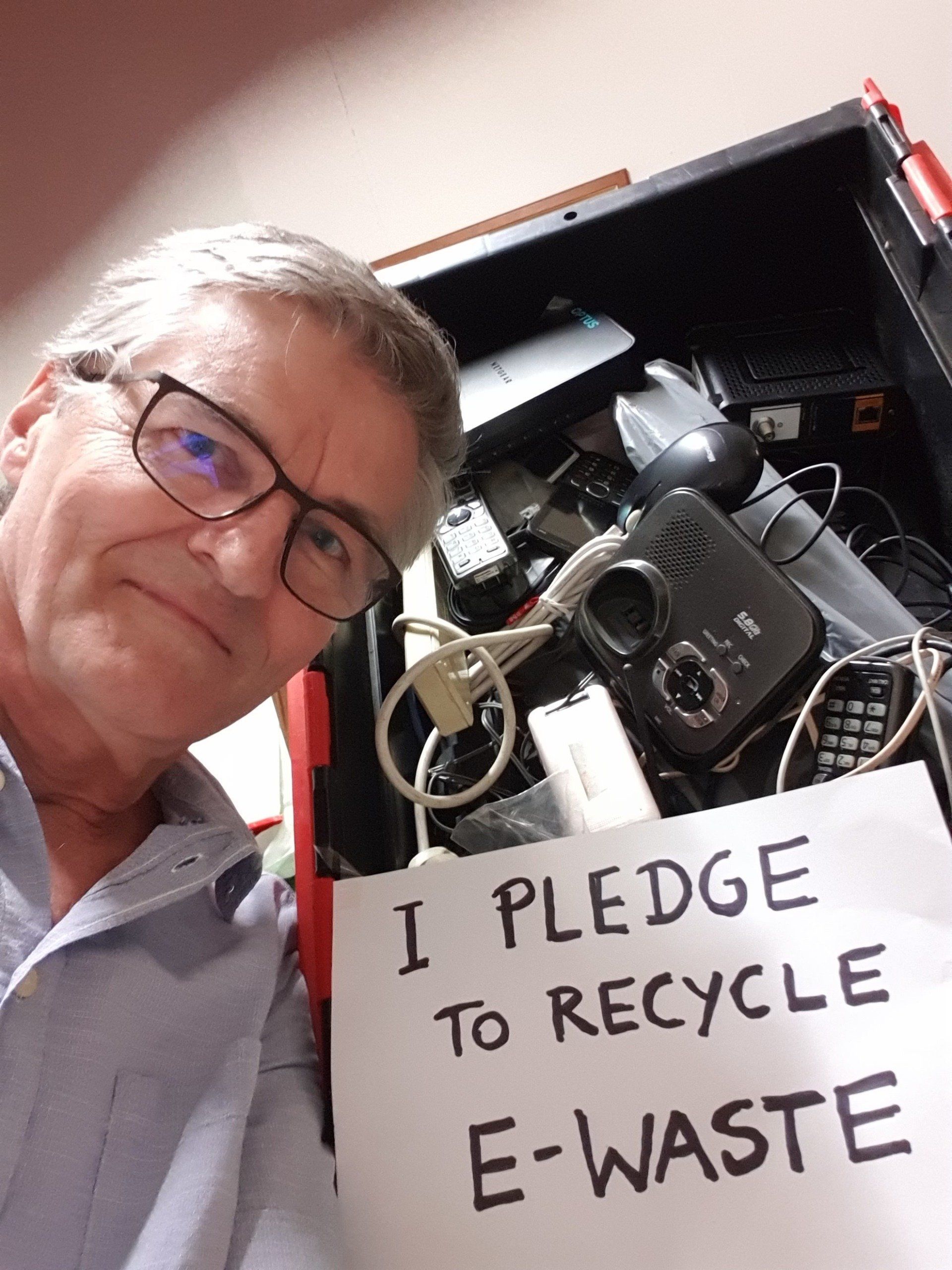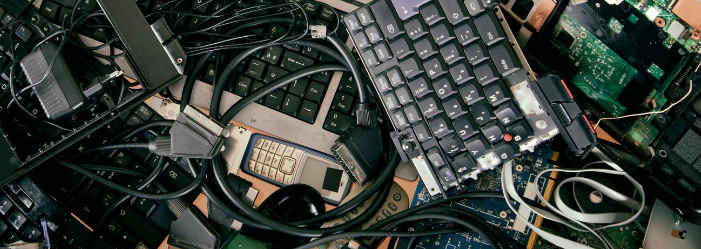5 steps to reduce e-waste
Did you know that although up to 98% of the components in your computer or television can be fully recycled, electronic rubbish is growing at three times the rate of any other waste stream?

Discarded devices are piling up around the world - the Global E-Waste Monitor 2020
reported that e-waste (discarded products with a battery or plug such as computers, microwaves and mobile phones) increased by 21 per cent in the five years to 2019, fuelled by higher consumption rates, shorter lifecycles and limited repair options.
SO WHAT CAN YOU DO?
1. REPAIR
Contact the manufacturer or retail store where you purchased the device. They will be able to provide you with information on how your device can be repaired using their service centres or an authorised service provider.
While Australia’s consumer affairs ministers last year promised
to consider laws boosting people's ability to repair their phones and other electronic goods, repair cafes have been springing up across the county, where people come together to offer each other tools and advice on repairs – with some even extending to engage remotely.
And have you heard of iFixit
– it’s a global community of people helping each other repair things.
2. REDUCE
Rather than buy new, could you save money, reduce landfill and buy a refurbished phone or laptop instead? Many major retailers like Dick Smith and JB Hi-Fi offer refurbished, like-new, and open-box products. Amazon Renewed
offers quality refurbished products that have been inspected and tested by qualified suppliers to work and look like new while Mazuma offers a same day dispatch and 12-month warranty on all refurbished phones.
3. REUSE
If your items are still in working condition, try to find a new home for your unwanted electronic goods first. If your mobile is still working, consider extending its life by passing it on to friends or family. Did you know you can sell your used phone for cash? Mazuma
offers fixed prices for both working and faulty phones, follows sustainable recycling practices and extends the life of old phones, so someone else gets an affordable working phone either in Australia or a developing country. The impact on planet earth is minimised, and you get paid for doing something good! Just remember to remove any data that you would like to keep, before you sell or give your phone away.
4. TURN THE DEVICE YOU HAVE INTO THE ONE YOU WANT
A number of network providers and manufacturers offer trade-in programs that can provide credit towards your next purchase or account - and mean your old device gets recycled responsibly. Get in contact to see if your phone is eligible and how much credit you could get. Before you trade-in your device though, make sure your safely back up, transfer and reset it. You'll also need to logout of online accounts and remove all locks and passwords.
5. RECYCLE
If your device doesn’t have any resale value or has stopped working then it's time to recycle it. Recycling your unwanted electronics helps reduce the need to mine raw materials for new technology. The e-waste is diverted from landfill and around 95-98% of raw materials recovered are recycled. Check with your local council - they'll usually have a drop-off centre. Thanks to
MobileMuster, you can recycle your phone at your local Optus, Telstra, Vodafone and Officeworks store. They have a host of other collection partners you can
find on their website and you can even recycle at home by ordering a free mailing label.
There is a free national recycling service
for computers, computer accessories and TVs. Computers and accessories that are in working order can often be refurbished with new software and some replacement parts. These repackaged computers are generally made available to low-income communities, individuals and community organisations. Electronic waste that is collected for recycling generally undergoes a manual dismantling process. The individual materials such as printed circuit boards, cabling, glass and plastics are recovered and then processed so that they can be used as raw materials to produce new products.
Are you ready to Step Up? Share your pledge and tag us @cleanupaustralia #stepuptocleanup
Search for other blog topics:





